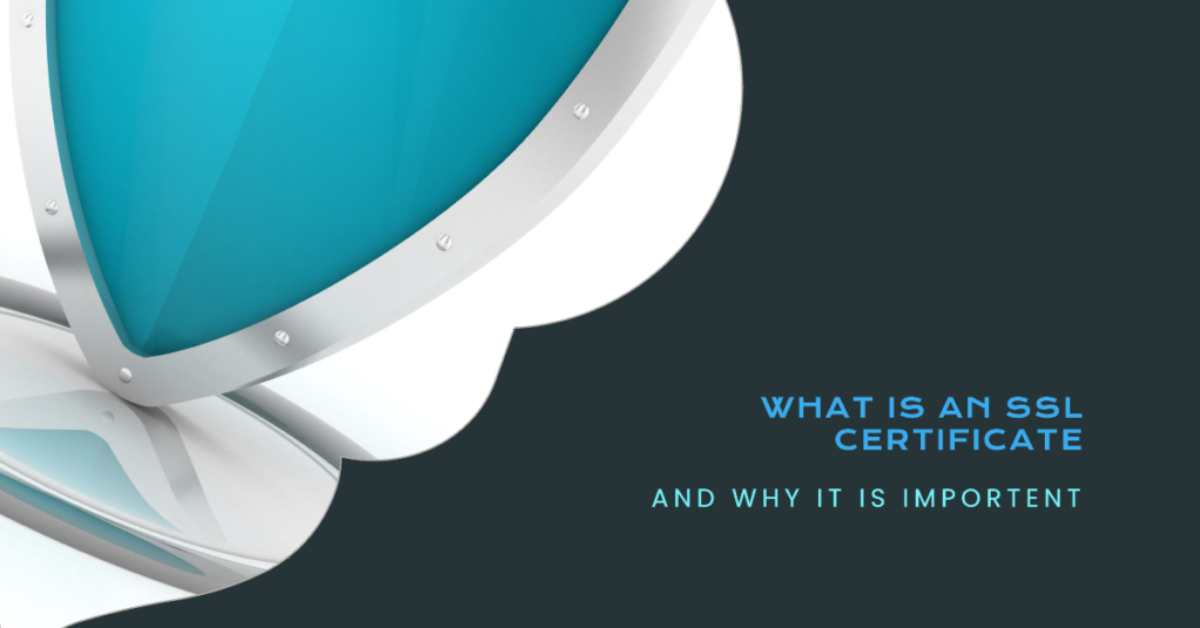What Is an SSL Certificate & Why Is It Important
In an era increasingly dominated by online interactions, the importance of website security continues to grow. A notable 82.9% of websites in 2023 fortified their defenses with an SSL certificate, underscoring its vital role in fostering secure browsing and data integrity.
But what underpins an SSL certificate, and why is it deemed essential in the architecture of modern web security? Let’s delve into the core principles of SSL certificates and explore their indispensable role in fortifying online exchanges.
Decoding SSL Certificates
An SSL (Secure Sockets Layer) certificate serves as a digital passport for a website, authenticating its identity and enabling a protected connection. Issued by a certificate authority (CA), this certificate is pivotal in shielding sensitive data exchanged from your computer to the site you engage with.

Implementing an SSL certificate guarantees that personal details or financial information are fortified against unauthorized interceptions and cyber threats. The robust security protocols implemented alongside SSL certificates ensure that data remains untampered, preserving its integrity from source to destination. This digital accord not only reinforces the security of information but also assures users of the confidentiality and protection of their online interactions.
The Connection Between SSL Certificates and Domain Name Search
The process to secure an SSL certificate begins with verifying a registered domain name, a crucial step in the application that involves a domain name search, ensuring compliance with security standards. This domain name, which users input into their browsers, must be confirmed by the authority issuing the SSL certificate. Successfully verifying a domain name not only allows for the activation of SSL certificates but also establishes a trust foundation, crucial for future security measures.
By registering a domain name, you create the groundwork for enhancing it with an SSL certificate, thus ensuring the security of data transmitted through that domain. This initial action is essential, as it confirms the domain’s authenticity and readiness for advanced security protocols.
Exploring Types of SSL Certificates
SSL certificates vary, designed to meet diverse security needs. Domain-validated (DV) certificates offer elementary security and involve a straightforward process to confirm domain ownership. In contrast, organization-validated (OV) and Extended Validation (EV) certificates provide more robust security levels by necessitating additional verification of the identity of the organization applying for the certificate.
Each of these verification levels is tailored to different risk profiles and user expectations, offering a spectrum of security assurance based on the sensitivity of the information handled. These stringent verifications ensure that only legitimate entities are granted an SSL certificate, thereby bolstering the trust and security of their websites. Each variant caters to different organizational needs, reflecting the versatility and adaptability of SSL security measures.
The Protective Role of SSL Certificates in Website Security
SSL certificates are fundamental to website security, encrypting data as it travels from a user’s browser to the website’s server. This layer of encryption prevents cybercriminals from capturing or deciphering the data.
Additionally, SSL certificates verify the legitimacy of this data transfer, ensuring the information arrives safely at the designated server, rather than falling prey to deceitful entities. This ensures a seamless and secure user experience, integral to maintaining the digital trust that users place in secured sites. This dual capability of encryption and validation is indispensable for websites that manage sensitive or personal information, serving as a robust barrier against data breaches and identity theft.
The Impact of SSL on SEO and Consumer Trust
Besides encryption, SSL certificates significantly impact SEO rankings and consumer trust. Search engines like Google favor websites secured with SSL, deeming them more reliable and safer for users. Consequently, websites with SSL certificates often experience enhanced search rankings. Improved rankings translate to greater visibility and potentially higher traffic, amplifying the importance of SSL in competitive digital marketplaces.
Moreover, an SSL certificate boosts consumer trust; the presence of the padlock icon in the browser’s address bar signals data security, encouraging user interaction with the website. This visual signal acts as a beacon of security assurance, strengthening user engagement and trust. This indicator also provides a swift boost to the professional credibility of your website.
Ongoing Management and Renewal of SSL Certificates
Maintaining the security advantages of SSL requires diligent management and timely renewal of these certificates. Expired SSL certificates can trigger security alerts on the website, deterring visitors and potentially harming the site’s reputation. Regular renewal and updates of SSL certificates ensure an uninterrupted secure connection and demonstrate to users that the website is actively managed and committed to maintaining user security.
Staying ahead of potential vulnerabilities through routine updates also aligns with global best practices in cybersecurity. Keeping an SSL certificate updated is also vital for compliance with evolving data protection regulations across different industries and regions.

Conclusion
SSL certificates transcend mere security enhancements; they are indispensable for any website committed to the privacy and trust of its users. By encrypting data and confirming website authenticity, SSL certificates play a crucial role in crafting a safer internet ecosystem. Whether you are a business owner, a privacy-conscious individual, or someone embarking on your digital experience, grasping and implementing SSL certificates is crucial.
The strategic deployment of SSL certificates is not just about security; it’s about establishing a foundation of trust and reliability in an increasingly interconnected world. As you engage in digital transactions and online interactions, securing your site with an SSL certificate represents your first line of defense against the potential turmoil of cyber threats.



